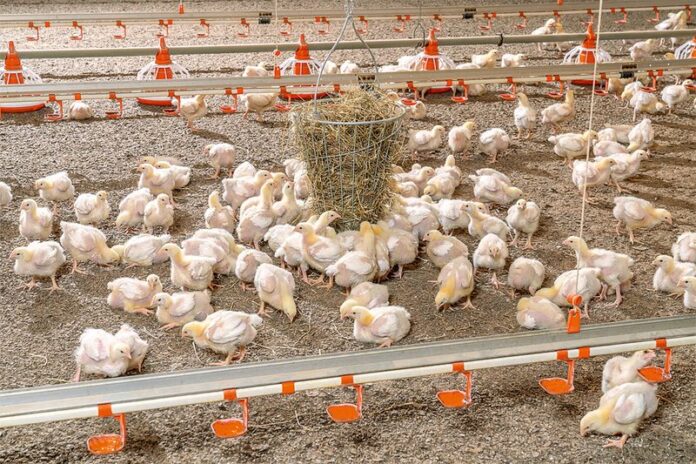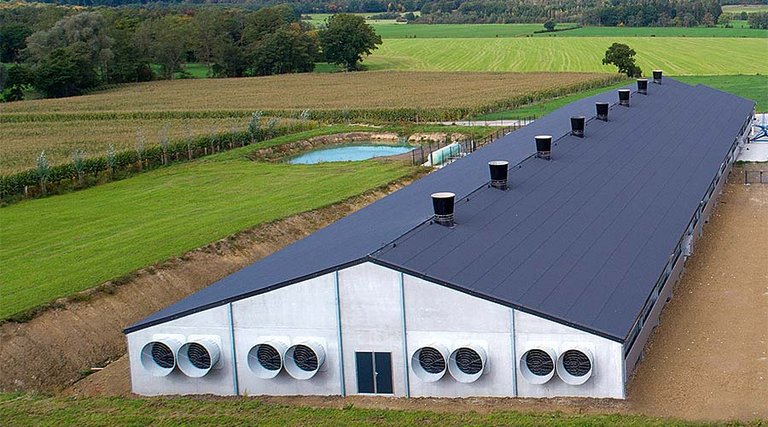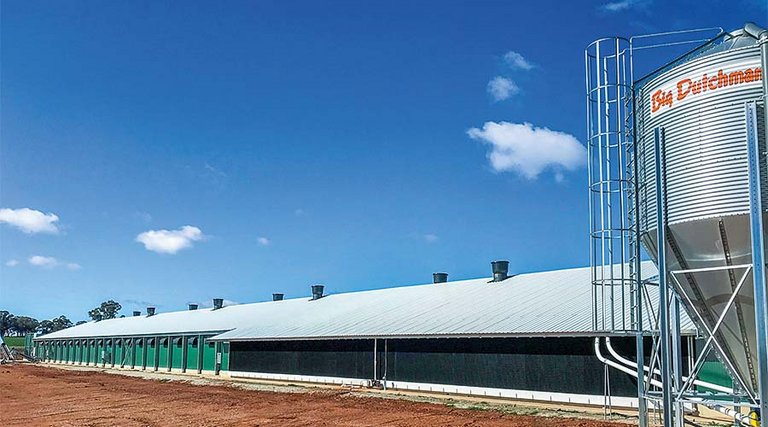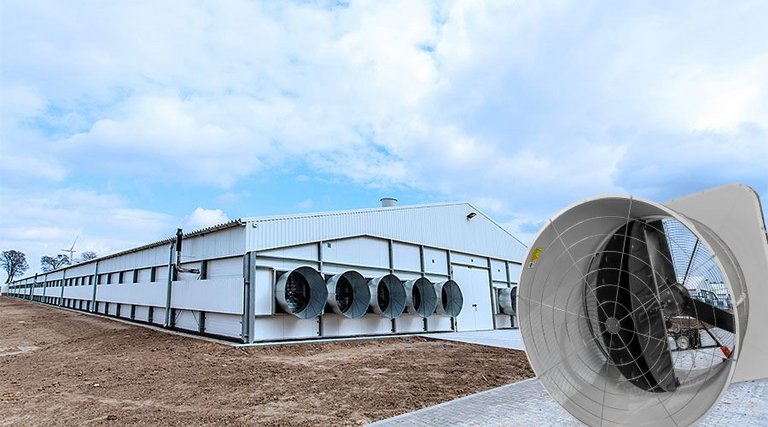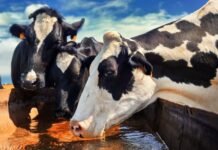While factors like temperature and feed management take the spotlight, one silent adversary often goes unnoticed: excessive water or moisture. The impact of high moisture levels in broiler houses relates directly to broiler health and productivity, which is a concern that warrants serious attention.
Especially when various issues that can affect the entire flock arise:
High ammonia levels
When air moisture or relative humidity levels go uncontrolled, manure does not dry efficiently and will contribute to caked litter in the house. This increases ammonia concentrations in the environment that have negative effects on broiler health, welfare and performance. Needless to say, exposure to high ammonia levels over a prolonged period can also impact human health.
Respiratory distress
High moisture levels create an environment conducive to the growth of harmful microorganisms such as bacteria, fungi, and moulds. These microorganisms can release spores and toxins into the air, leading to respiratory problems among broilers. Irritated airways, laboured breathing, and reduced lung function can result in decreased growth rates and overall performance.
Heat stress
High relative humidity levels reduce the efficiency of evaporative cooling mechanisms in birds, making it harder for them to regulate body temperature. This increases the risk of heat stress, which is a common issue in broiler houses. Heat-stressed birds exhibit reduced feed intake, decreased weight gain, and even mortality in severe cases.
Health issues
Damp litter and excessive moisture can lead to footpad dermatitis and breast blisters. Birds that are constantly in contact with wet surfaces can develop painful lesions on their footpads and breasts, which may become infected. This condition not only causes discomfort but also results in reduced mobility and increased susceptibility to infections.
Decreased feed conversion
Birds under stress from excessive moisture tend to divert energy from growth to coping mechanisms, leading to decreased feed conversion rates. This means that more feed is needed to produce the same amount of weight gain, directly impacting production costs.
These issues, however, do not crop up overnight. Problems related to moisture levels require time to show their symptoms, often over a few days or weeks. This means constant monitoring of house conditions is imperative – even when the situation seems under control – to ensure that moisture issues can be remedied before they become difficult to reverse.
Controlling moisture issues – three key aspects for a thriving flock
1.) Keep relative humidity in check with efficient ventilation
To control moisture levels, the house needs to be properly ventilated at all times. A target relative humidity level of 40 % to 60 % is ideal to keep manure and litter dry. But this is not as simple as keeping the fans running 24/7: farm managers must make proper ventilation calculations based on house size, bird age, population and external climate. Then it’s about monitoring and tweaking ventilation levels, along with ensuring the air inlets and fans are functioning optimally.
A clever addition, especially in regions with hot and dry summers, is an evaporative cooling system. Water is added to the surface of polypropylene pads (PP pads). When air flows through the moist pads, evaporation ensures that heat is removed from the air, thus cooling it down. At the same time, humidity is added to the environment so the relative humidity in the house increases. In combination with the ventilation system, poultry managers can thus guarantee a healthy climate in their poultry house any time of the year.
Solutions
Big Dutchman offers a host of equipment and systems to ensure broiler houses are well regulated at all times. From powerful yet energy-efficient exhaust air fans such as the AirMaster series to versatile fresh air side inlets that provide uniform air circulation throughout the entire house, and to the RainMaker pad cooling system: With the wide range of products available from Big Dutchman, the German poultry equipment supplier has an answer for any climate situation worldwide.
Moreover, the entire ventilation system can be automated using advanced sensors and technology such as the ViperTouch climate computer.
2.) Prevent leaks in the drinker lines
Leaking water lines or malfunctioning drinking systems can contribute to excessive moisture. Farm managers should regularly inspect and maintain water systems to prevent leaks that could lead to wet surfaces in the house, which can cause litter caking and excessive build-up of ammonia. A well-implemented drinking system must be flexible and robust enough to cater to the needs of the growing broilers.
Solutions
With its range of drinking systems, Big Dutchman is able to equip houses with pressure-stable, hygienic and adequate water for broilers. Products such as water connection units and nipple drinkers are robust and durable, featuring leak and spillage protection. Further enhancements can be made using an electronic water alarm that can monitor water levels and temperatures in drinker lines, alerting farms managers of any issues in real time.
Further enhancements can be made using an electronic water alarm that can monitor water levels and temperatures in drinker lines, alerting farms managers of any issues in real time.
3.) Ensure the house is airtight
The proper functioning of the ventilation system is only as good as how well the house is sealed. The air flowing into the house should not be entering through cracks or loose areas of walls or the roof, as this will disrupt the air circulation and eventually cause humidity to rise. A house structure that is badly sealed will also cause the exhaust air fans to work harder, hence increasing power consumption and overall costs.
Controlling moisture is a delicate balance between ventilation, water management and building the right structure, which is one of the integral ways to grow a healthy and high-performing flock. Big Dutchman’s expertise and experience in complete broiler production solutions help to ensure an environment that fosters optimal conditions for farmers and their broilers.



